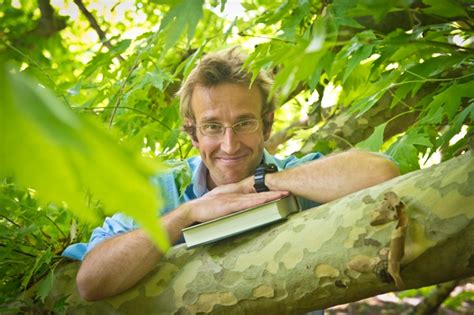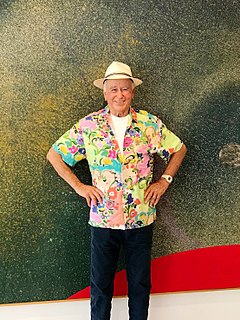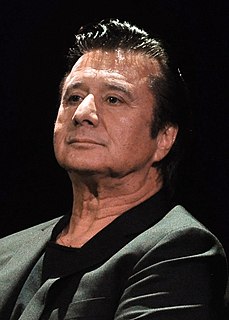A Quote by Alan Ball
I always choose to look, as much as one can, at the supernatural not being something that exists outside of nature, but a deeper, fundamental heart of nature that perhaps humans have lost touch with. It's a more primal thing than perhaps we are attuned to in our modern, self-aware way of life.
Related Quotes
The assumption that the laws of nature are eternal is a vestige of the Christian belief system that informed the early postulates of modern science in the seventeenth century. Perhaps the laws of nature have actually evolved along with nature itself, and perhaps they are still evolving. Or perhaps they are not laws at all, but more like habits.
A man does not have to go and find where his eyes are in order to see. The heart is there, always open to you, if you care to enter it, always supporting your movements, although you may be unaware of it. It is perhaps more correct to say that the Self is the Heart. Really the Self is the centre and is everywhere aware of itself as the Heart or Self-awareness.
Humans suffer from self-centred notions as to the nature of life. Humans assume that alien life forms should conform to standards that match our own, including logic and morality. Even among humans, morality is ignored when expedient. Why should we expect more from an alien life form than we demand from ourselves?
Perhaps down in his heart Okonkwo was not a cruel man. But his whole life was dominated by fear, the fear of failure and of weakness. It was deeper and more intimate that the fear of evil and capricious gods and of magic, the fear of the forest, and of the forces of nature, malevolent, red in tooth and claw. Okonkwo’s fear was greater than these. It was not external but lay deep within himself.
Perhaps randomness is not merely an adequate description for complex causes that we cannot specify. Perhaps the world really works this way, and many events are uncaused in any conventional sense of the word. Perhaps our gut feeling that it cannot be so reflects only our hopes and prejudices, our desperate striving to make sense of a complex and confusing world, and not the ways of nature.
It is the fate of modern life that we repeatedly lose touch with nature, the environment, the planet. But we try to regain it again and again. It's like a circle. In children's hearts and souls when they're born into the world, nature already exists deep inside them. So what I want to do in my work is tap into their souls





































